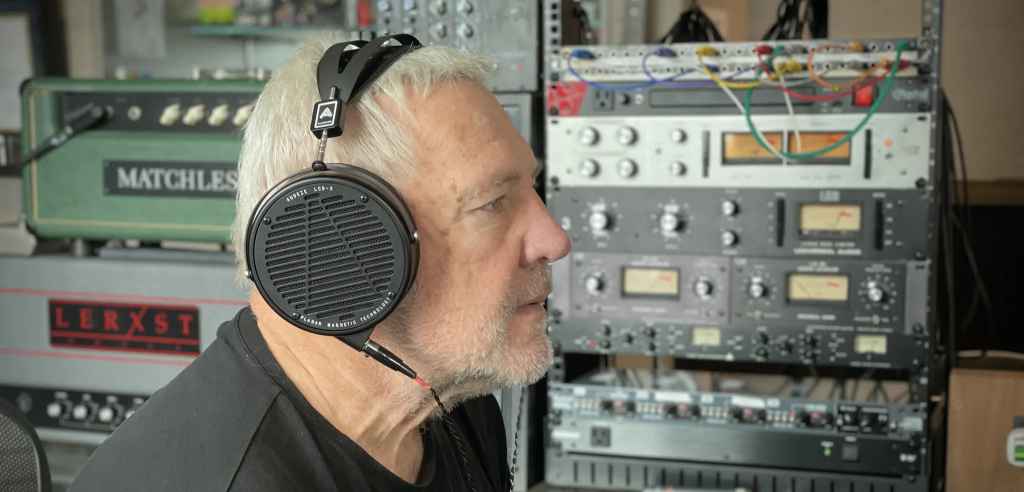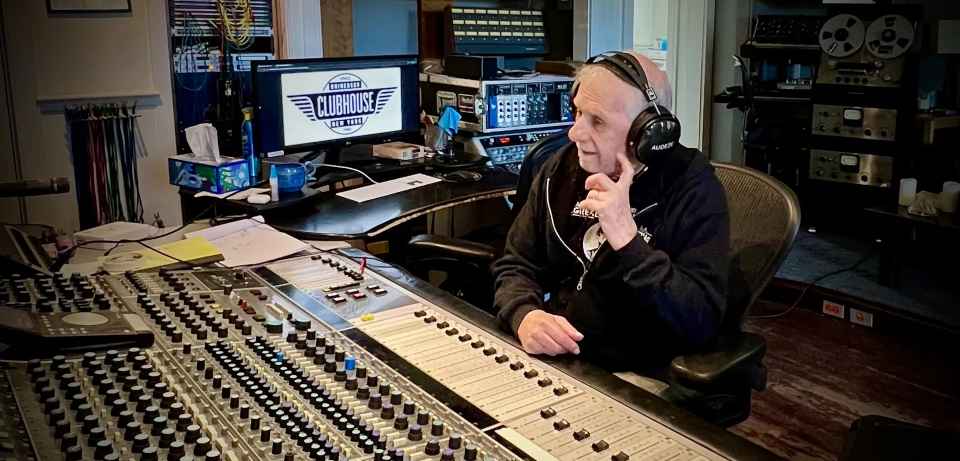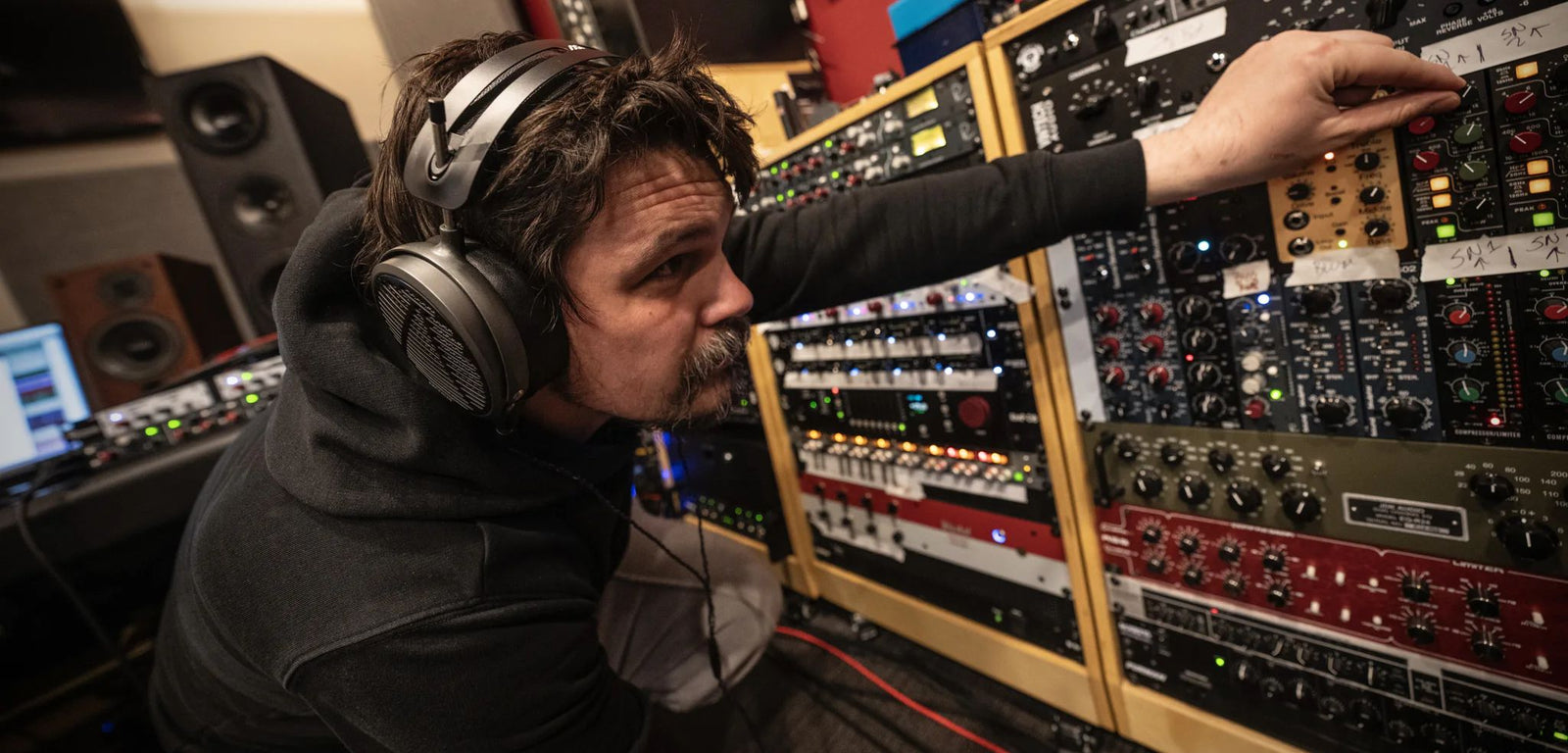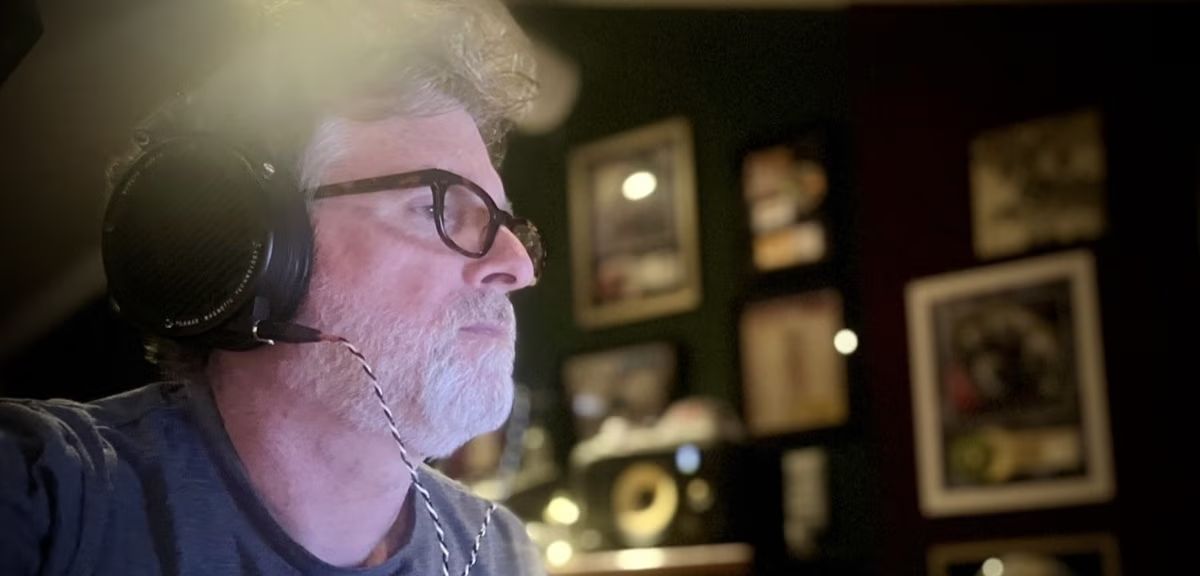
Alex Lifeson is a Canadian musician, best known as the guitarist of the Canadian rock band Rush.

Elliot Scheiner is an engineer and producer. He started working for Phil Ramone at his A&R studios which at that time was considered one of the best studios in the country.

James 'Jimmy T' Meslin is a Grammy winning recording, mix, and live sound engineer based out of Long Island, NY. He's probably best known for his work with prog-metal giants Dream Theater and their affiliated projects.

Dave Way has been mixing longer than he hasn’t. Platinum albums, No. 1 singles, 4 Grammys, 19 Billion streams with names like Michael Jackson, Fiona Apple, P!nk, Xtina Aguilera, Ringo Starr, Iron And Wine, Sheryl Crow, Marshmello, Fall Out Boy, Kesha, Macy Gray, TLC, Victoria Monet, Sons Of Anarchy, Tracy Chapman, Ben Folds, John Doe, MC5, Spice Girls, Weird Al, Paul McCartney, Bobby Brown, Mick Jagger and many, many more.
September 03, 2021
Jerome Sabbagh is a jazz saxophonist and composer who grew up in Paris, France, but has called Brooklyn home since 1995. He has worked with many important artists, and was introduced to Audeze by Ben Monder.

I particularly liked working with keyboardist Jozef Dumoulin on our record “Plugged In”, with Patrice Blanchard and Rudy Royston. I was a fan of Jozef's music, we each wrote some tunes for the record and I am proud of the result. I’m also proud of the mostly improvised record I’ve done with Ben Monder and Daniel Humair, “I Will Follow You”, and my latest album co-led with Greg Tuohey, “No Filter”, with Joe Martin and Kush Abadey. That album was recorded live to two track 1/2 inch tape by James Farber and is available on all analog vinyl.
I mostly work with my own bands, although I very much enjoy being a sideman as well, and in fact, would welcome the opportunity to do that more. I usually write music with specific people in mind, and put bands together. When I record, I act as my own producer. I seek out musicians who both inspire me and challenge me, it’s a delicate alchemy.
Although my parents are not musicians, there was always classical music playing around the house when I grew up but I really got into music through my music teacher in middle school, Annick Chartreux. She would play everything for us, from Mozart to Miles, from Jimi Hendrix to French chansons. She is an accomplished pianist and composer herself and she created a school band, which is unusual in France, contrary to the US. I am still pretty eclectic in my tastes. I listen to a lot of jazz, obviously, but also a lot of other things.
I was lucky to study at different moments in my life with some really great teachers. They all influenced me and inspired me: Philippe Chagne, John La Porta, Bill Pierce, Dave Liebman, George Garzone, Sophia Rosoff. Otherwise, I’d say moving to Boston to study at Berklee, and moving to New York were defining factors in my development. When I moved to New York, I was out pretty much every night, playing as much as I could and just taking in a lot of music, all the time. It definitely changed me, and the way I approach music.
Some heroes of mine are Sonny Rollins, Joe Henderson, Stan Getz, Dexter Gordon, John Coltrane, Miles Davis, Thelonious Monk, Keith Jarrett. There are many others.
I’ve had a lot of seminal moments hearing amazing gigs, particularly at the Village Vanguard and at Smalls. I was lucky to hear the Paul Motian Trio with Joe Lovano and Bill Frisell many times at the Vanguard. That was always special. When I moved to New York, Kurt Rosenwinkel was playing Smalls every Tuesday, usually with Mark Turner, Ben Street and Jeff Ballard. Guillermo Klein and Los Guachos also played there regularly. I still remember those concerts as some of the best music I’ve ever heard. The records, as good as they are, don’t even come close. For me, getting to play with Los Guachos a few years later, when Guillermo had a residency at the Jazz Standard, that was a big deal. Much later, I had opportunities to play some sessions with Frank Wess, who I met through a mutual friend, at his house. The energy was amazing. I also played with Paul Motian for a week at the Vanguard, towards the end of his life, in a trio with guitarist Ben Monder, which was a dream come true. All these moments changed me.
I once played a trio song in a concert in Mexico with Reggie Workman and Andrew Cyrille, during a week of gigs there with a larger ensemble. Andrew took this incredible drum solo - in fact my favorite moments of that whole week were hearing him solo, it was really fascinating… and I think it was open form, but I still needed to come back in with a melody at some point. He played something that I thought was a cue, but I totally misinterpreted what he did, so I basically cut him short and came in with the melody while he wasn’t finished. I totally made an ass out of myself and everyone heard it. It was entirely my fault and I felt awful. I had spoiled the moment. I apologized to Andrew after the gig, he was gracious about it. In the rehearsal, he had played something to cue me in and at the gig, I thought I heard something similar so I came in, wrong. I was so eager and anxious to hear the cue, to come in “right" that I stopped listening deeply and missed the intent of what he was doing. Had I been really in tune with what he was playing - and I should have been - everything would have been just fine. That was a big lesson, and one that I still think about regularly. Sometimes you can get in your own way, and it’s really better if you don’t...
Generally I’ll take a great sounding room over any piece of gear, but gear is still important. At home, I tend to prefer listening through tube equipment. In the studio, in general, I prefer tape to digital. I like Neve boards. To record saxophone, I think my favorite microphone is a Neumann M49, but I also like U67, RCA 44 and others. I’m a bit of an audiophile. At home, I’ve used the same stereo system for a while and it’s good enough that I feel I can really hear what’s going on in mixes.
For me, recording is more about capturing the live sound and preserving the emotional content of the music in a way that translates to the listener. There are different ways to do that, some more circuitous than others, but in general I find that less is more.
I’m lucky to have an instrument that I love, an old Conn tenor saxophone from 1924, so I stick to it. I also have been playing the same mouthpiece ever since I started playing tenor saxophone, in 1994. It was given to me by Bill Pierce, it’s an old Otto Link that was at one point refaced by Adam Niewood, and it’s great.
Notice and refine what makes you unique, and learn to accept your weaknesses, even as you work diligently to overcome them. Be open, stay curious. That’s what I’m trying to do.
If I have to assess something I’m playing on, I typically start listening on speakers, but use headphones to get a second opinion, and to make sure things translate. I am not a sound engineer, but, out of necessity, I did the sound for a few months for a video live stream series I ran at Bar Bayeux, Brooklyn, a series which has since resumed with a live audience. We streamed live gigs every Wednesday on Bar Bayeux’s Facebook page and then uploaded the gigs to YouTube for a week. It was a way to get something going while we couldn’t have live music because of the pandemic. I’ve always paid attention to the recording process and I strive to make the best sounding records I can, so it was educational - and humbling - to figure out how to record other people. When I did the live streams, good headphones were essential, because that’s all I had!
Just that I’ve recently recorded an album I’m really excited about, with Kenny Barron, Joe Martin and Johnathan Blake. Obviously Kenny Barron is a master, and a hero of mine, so playing with him was a thrill. This project was scheduled months ago but got cancelled due to the pandemic, and I’m glad I was able to get it done. It’s another all analog project. I’m hoping to start mixing it pretty soon, with engineer Pete Rende.
Incidentally this project is how I got into Audeze headphones, as Ryan Streber, who engineered the session at Oktaven Audio, had a pair of Audeze LCD-X and we used them on the session to compare some things. You could hear differences clearly and the headphones sounded clear and balanced, musically right. They seemed to give me an insight into the music that I often find missing on headphones.
I find myself listening on headphones more than I normally do. Because these headphones are so detailed and natural, and also have much more of a soundstage than I’m used to on headphones, I have been reaching for headphones more often!
I am listening to the rough mixes of my next record with the LCD-X and starting to think about what I want to do at mixing. I will certainly use them once we start mixing. I’ve also been using the Audeze for the live streams I run at Bar Bayeux every Wednesday (which are live on Facebook and also archived on YouTube), both to do the live mixes, as well as to listen and assess afterwards.
The headphones are great!